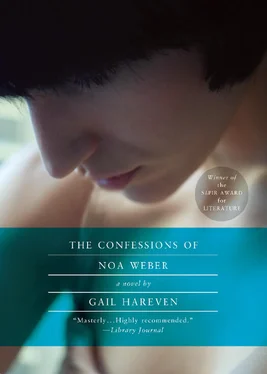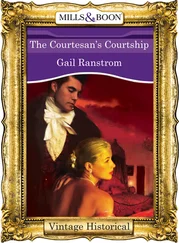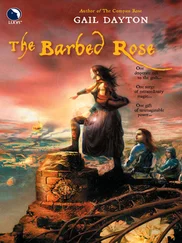Kibbutz, girls, do you have any idea of what a kibbutz is? No, of course you don’t, because the only people who know what a kibbutz is are those who grew up on one, like me. If there are any Jewish souls among you, if you grew up on the propaganda of the Jewish National Fund, kindly forget the fishermen spreading their nets, the female tractor driver and the suntanned women picking oranges and smiling photogenic smiles from the tops of their ladders. A kibbutz, my sisters, is not a poster, and even though the children’s house covered in ivy and bougainvillea looks like the Garden of Eden in the photographs, that’s what the island in Lord of the Flies looked like in the beginning, too.
The children’s house … let me tell you about the children’s house. In this house with the red-tiled roof, I was abandoned every day to the violence of my peer group, and every night to my loneliness. Eight years times three hundred and sixty-five days equals … You can work it out yourselves, but the sum is the number of nights that I was abandoned by my mother.
Eight times three hundred and sixty-five days of violence and ridicule, and eight times three hundred and sixty-five long nights of anxiety and fear, taught me to hide my neediness. When I ran away from the group to my parents’ room, my mother would lose no time in taking me back. When I complained, she pretended that she didn’t hear or told me to be strong and pull myself together. And I, it seems, was a good pupil, and gradually I stifled my tears until the weeping was silenced inside me and turned into quiet despair. That’s how they taught me to associate love with abandonment, and that’s how they got me used to the idea that love is not a refuge.
Only now, my sisters, that I, Adele H. from Israel, sit here in our nocturnal group, do I suddenly have the insight that with so many abandonments behind me — I’ve already counted them for you: three hundred and sixty-five times eight — with so many abandonments, it’s clear why before I reached the age of eighteen I turned myself into a Natasha (natash being Hebrew for “abandon”), and why I have remained abandoned ever since.
This kind of description, which is definitely not complete fiction, but only partly false, this kind of description would immediately reward me with an international wave of empathy. The trouble is that what I need is contempt, not empathy, and certainly not the empathy of blockheads.
A parody of self-interpretation will not bring me the self-disgust I’m looking for.
I say a parody of self-interpretation, partly because my childhood wasn’t as miserable as I described it, but mainly because I, in contrast to my sisters-who-love-too-much, do not believe that my dybbuk has a “psychological background.” My father, my mother, and Yochie the kibbutz children’s caretaker, have no part in this story, and if not for the psychobabble they hear on the television or read in the newspaper, it would never have occurred to the love-addicts of LAA to shove their parents into the picture, either. Think of Romeo and Juliet, for instance: it’s true that Romeo and Juliet had parents, and logic demands that before the play begins they had some kind of childhood too, but nobody would seek the reason for Juliet’s love in Mrs. Capulet’s eating disorder, the love came of its own accord, the love seized hold of her, the love made her what she was. And in the face of such a lightning bolt only an idiot would insist on asking, “Why?”
So even if I could easily offer a psychological explanation for my dybbuk, and not only just one but a few, in this matter you won’t get even a hint of a clue from me. Accept it, dear reader, or not; here I stand, and this is not a psychological novel.
And if, like some stubborn interviewer, you go on nagging me about the “why,” I’m prepared to throw out the hypothesis that on the second of July, nineteen-hundred and seventy-two, somebody put a love potion into my coffee. It was black Turkish coffee, and I drank it from a thick glass purchased in the Machaneh Yehuda market in Jerusalem. The kind of love potion imbibed by Tristan and Isolde, who as far as I know had no psychological reasons for their love either.
JULY THE SECOND NINETEEN SEVENTY-TWO
Nineteen seventy-two was an eventful year. Richard Nixon defeated McGovern. Bobby Fischer defeated Spassky. The Pope visited China. Brezhnev was taken for a ride on Apollo 15. Terrorists poisoned the pandas in the Washington Zoo. I’m not being serious here. I could have done a bit of research to refresh my memory, but I don’t leave the house now, and what do I need research for? I’ve already warned you that there isn’t going to be any historical panorama here, only me, me and my life, that in the summer of ’72 received its present form.
I can’t describe what I was like before the second of July, but if it’s really necessary, think of a formless entity of a girl. Naturally I did various things, like most of the people around me, and voiced opinions like them — more emphatically than most, as a matter of fact — but these deeds and words did not shape the entity I was into any particular form.
Because what can you already say about a seventeen-year-old girl? That she’s a good student, but not a nerd? That she’s athletic? That she collects stamps? I didn’t collect stamps. That her relations with her parents are strained and her relations with her younger sister a little less so? Open any teen magazine and you’ll find hundreds of girls described in precisely the same terms.
When I say formless, I mean mainly in the bodily sense. My measurements haven’t changed much since then, only my style of dressing has undergone changes; in the summer of ’72 I went about mainly in batik skirts and Arab kaftans, and my sense of my body underneath them was as loose and fluid as the garments. In hindsight, that body seems to me like a sea mollusk without edges, as if it hadn’t been properly packed into my smooth girlish skin.
Of course I didn’t think of myself in those days as a formless mollusk. In April I began to fuck and in May I discovered how to come. The earth didn’t shake, even though I wanted very much to convince myself of a certain tremor, but in any case at the beginning of July, with the experience of about ten orgasms behind me, I saw myself as a model of decadent sensuousness, Liza Minelli playing Sally Bowles.
I began to fuck, I say, but in those days in our school nobody “fucked,” not even the boys. “Going to bed with,” we called it politely, or “going all the way,” or best of all: “making love.” And since I had “made love,” or more precisely in order that I could at long last “make love,” I was naturally obliged to assume that I was “in love.” My boyfriend’s name was Amikam, and he too was officially in love.
In order to “make love” we would go for hikes in the countryside on holidays and weekends. On ordinary weekdays, we would go to the Jerusalem forest, a place which should more properly be called the Jerusalem woods, and it was all as nice and delightful and enjoyable as it was supposed to be, except for an alarming weariness that sometimes overcame me on the way back. This weariness sometimes came over me without any connection to anything: a gray heaviness that poured in and overpowered me so that I had to sit down on the curb. My head like a hot sponge, my eyelids stuck together, hearing the cars go past, smelling asphalt and gasoline, and losing my limbs that refused to take messages from my brain. How many times did it happen? Five or six, I don’t remember, but I do remember Amikam’s hands massaging my shoulders, invading my bra and retreating with the noise and heat of another passing car, the hands of a boy trying to awaken Sleeping Beauty.
Читать дальше












